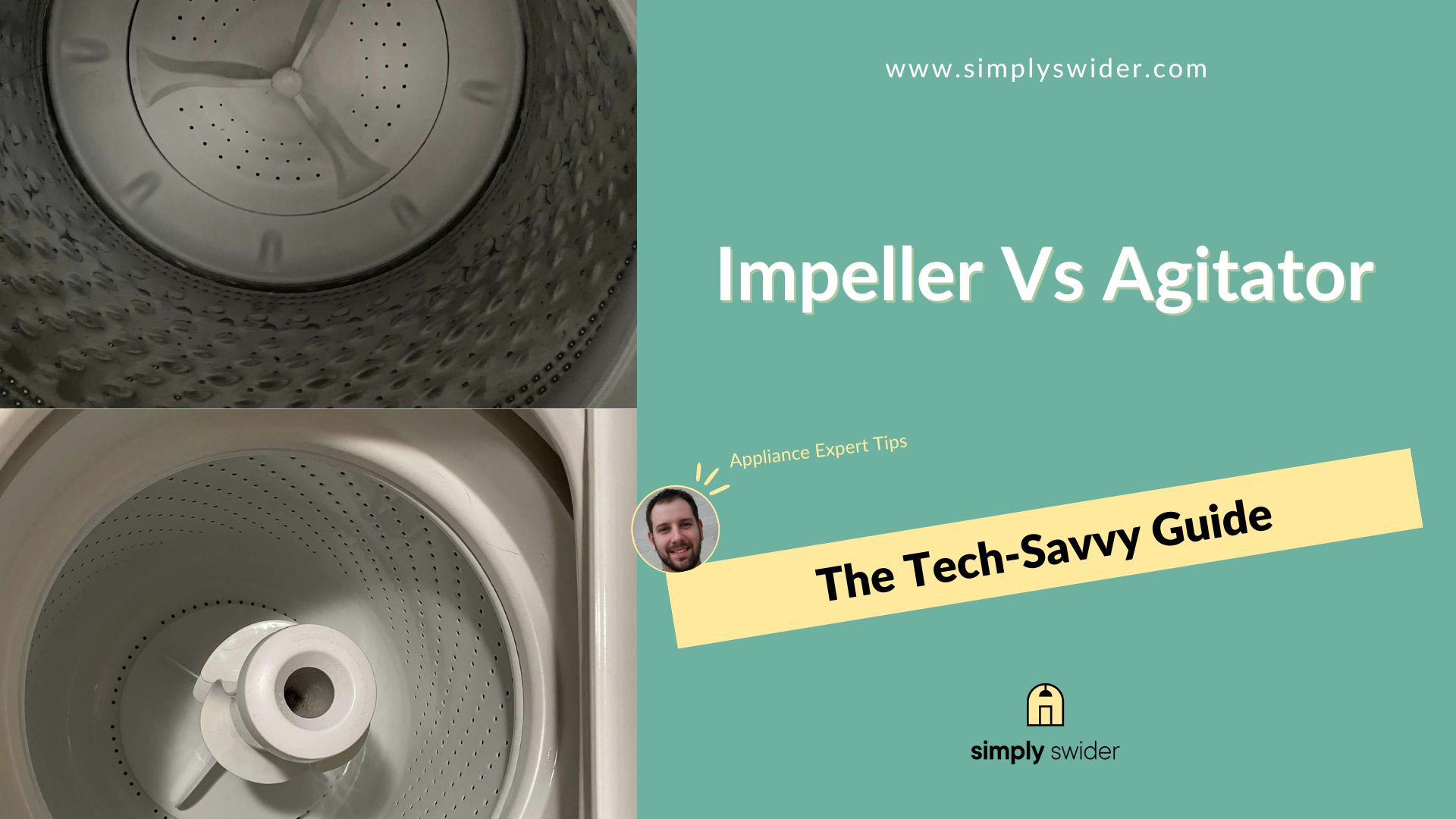Listen up, folks:
If you’re in the market for a top-load washer, you’ve probably stumbled upon the great debate: Impeller vs Agitator. Trust me, I’ve repaired enough of both to know they each have their merits—and their pitfalls.
So, what’s the deal? Which one is right for you?
I’ll break it down. I’ve seen how each performs under pressure, and I’m here to give you the pros and cons. By the end of this, you’ll know exactly what you need.
Ready? Let’s dive in.

Table of Contents
Key Differences Between the Impeller and Agitator
| Brand | Estimated Impeller Price | Estimated Agitator Price |
|---|---|---|
| Whirlpool | $600 – $800 | $500 – $700 |
| GE Appliances | $550 – $750 | $450 – $650 |
| Samsung | $650 – $850 | $550 – $750 |
| LG | $600 – $800 | $500 – $700 |
| Maytag | $550 – $750 | $450 – $650 |
| Kenmore | $500 – $700 | $400 – $600 |
| Hotpoint | $450 – $650 | $350 – $550 |
| Amana | $500 – $700 | $400 – $600 |
| Speed Queen | $700 – $900 | $600 – $800 |
Listen up, from years in the field, I can tell you that the impeller and agitator are not just “spinny things” in your washer. They’re worlds apart. The agitator uses a twisting action, moving your clothes against itself, while the impeller uses a cone to create a current that moves your clothes against each other. The agitator is often more budget-friendly and long-lasting, but the impeller is your go-to for a gentler, more efficient wash.
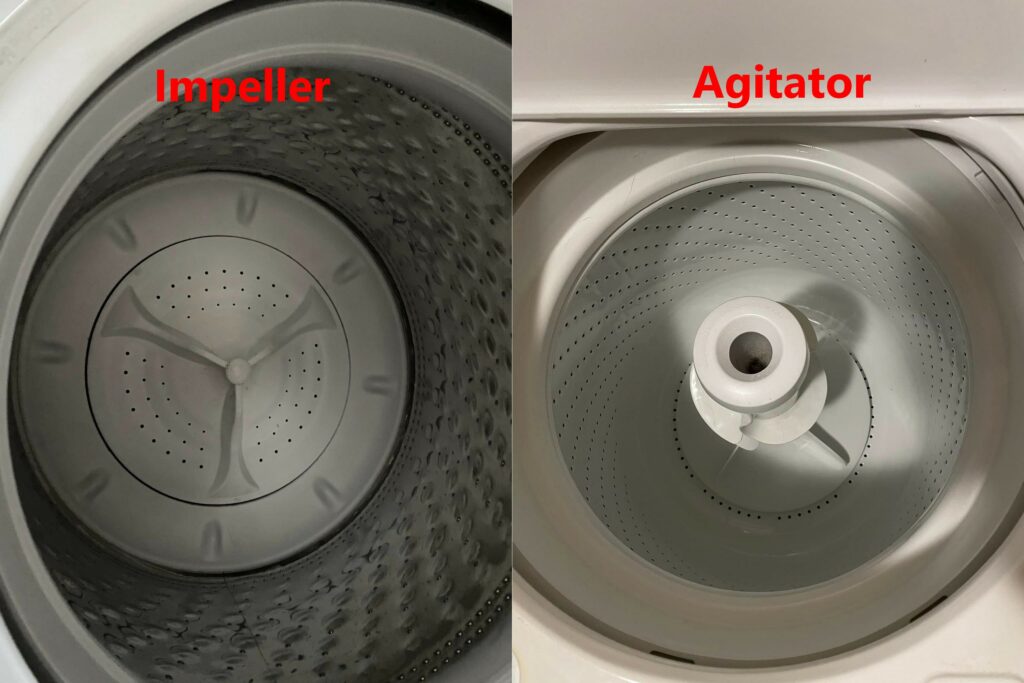
Now, to break it all down:
I’ve teamed up with Tyler Richey, a seasoned pro from Tulsa, Oklahoma. Tyler’s seen it all—every top-load washer and every kind of owner mishap you can imagine.
So stay tuned:
We’re going to dive deep into the pros and cons, clearing up any confusion you might have. Trust us, by the end of this, you’ll know exactly what you need.
What Is an Impeller?
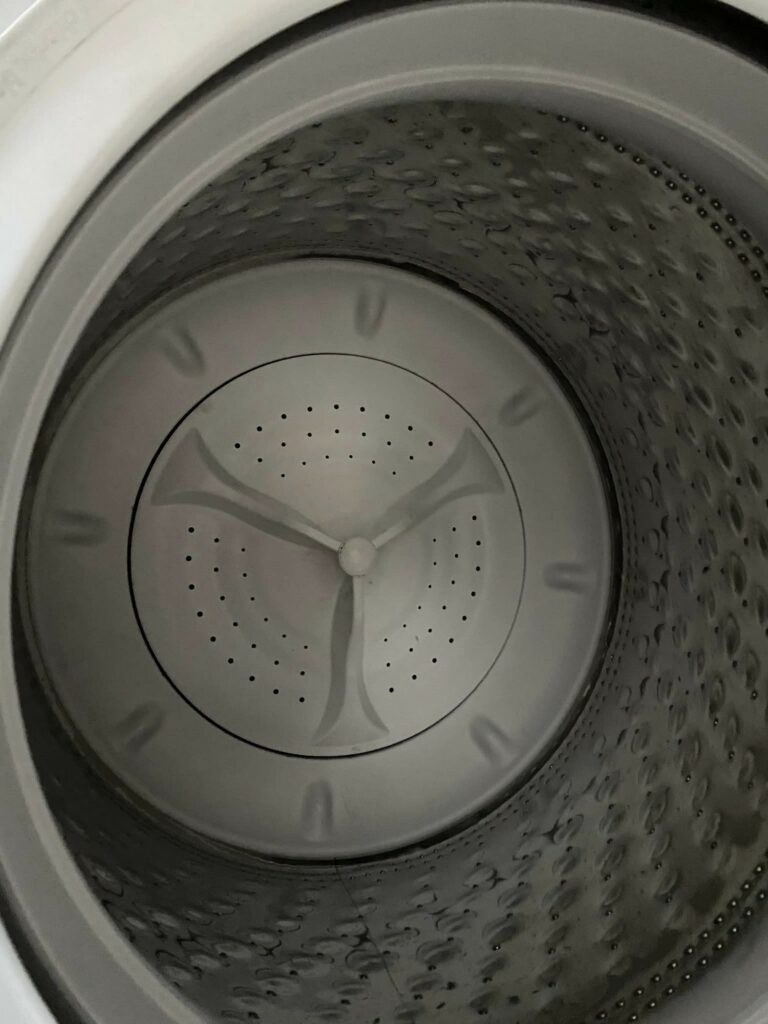
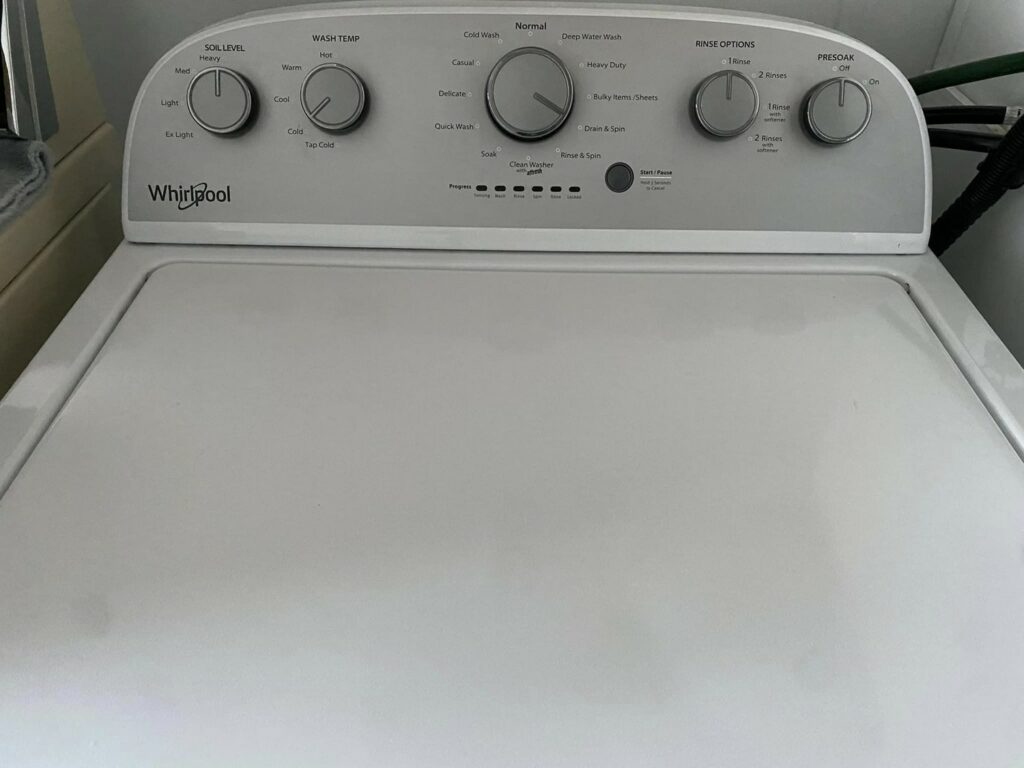
Straight from the trenches:
The impeller isn’t just some fancy component in a top-load washing machine. Positioned at the drum’s base, it’s designed like a propeller – sleek yet functional.
From countless repairs and chats with other technicians, I’ve learned a lot about it. As Tyler aptly describes, “The impeller, through centrifugal force, generates a soft yet effective current. This not only ensures balanced loads but also distributes detergent and gets those clothes spotless.”
Here’s a trip down memory lane:
Introduced in the 1960s, the impeller was envisioned as an answer to the traditional agitator, aiming to reduce wear and tear on fabrics. As a result, it’s become a testament to manufacturers’ relentless drive for enhanced washer efficiency.
What’s more:
With its gentle approach, increased drum space, and eco-friendly features, the impeller isn’t just a component; it’s revolutionized the game. But as with all innovations, opinions vary. Tyler notes, “For every skeptic, there’s someone who sees the impeller as the next big thing in washing tech.”
And after all my years on the job, I tend to agree.
What Is an Agitator?
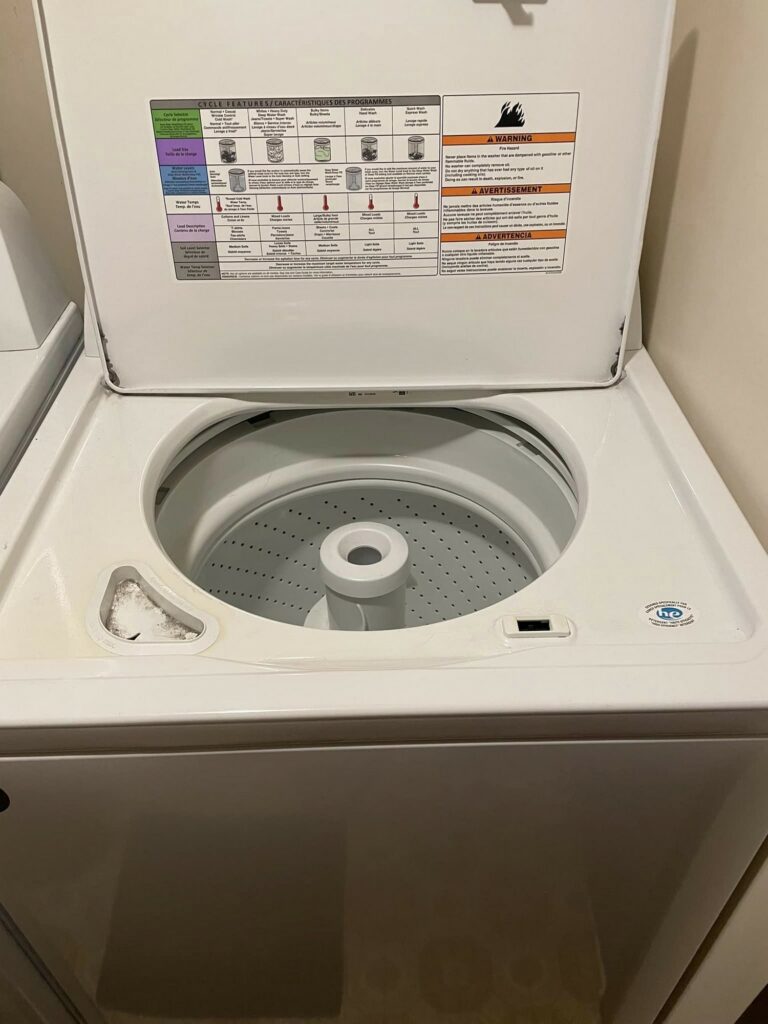
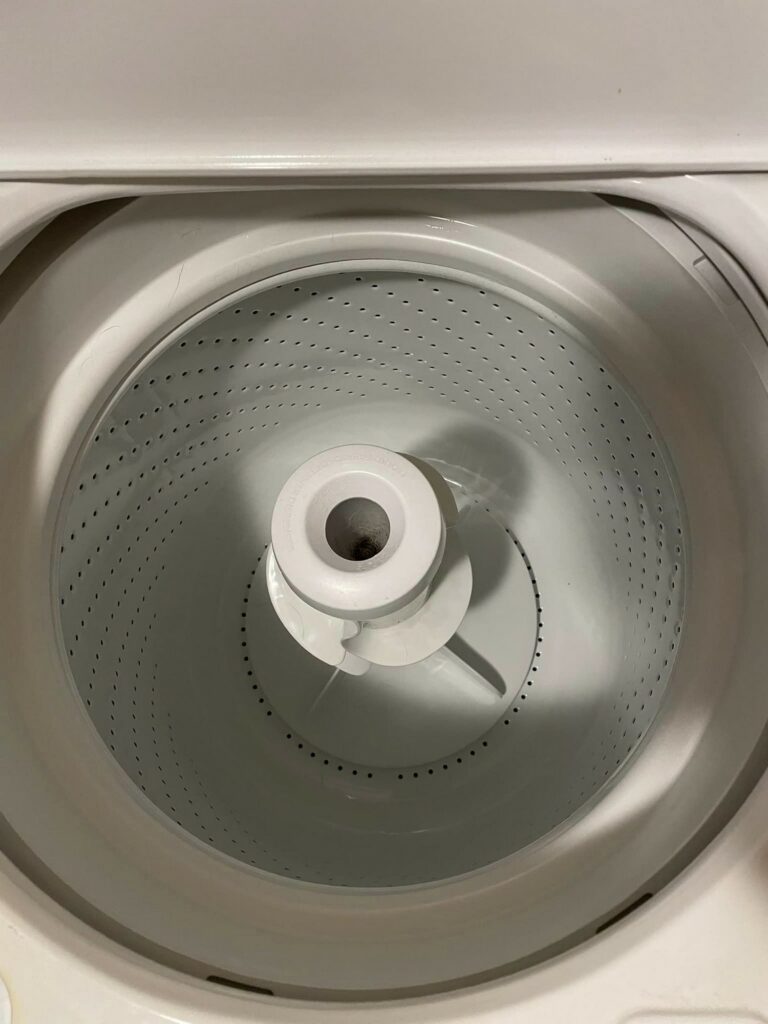
Listen up:
If you think all washers are created equal, think again. Ever heard of an agitator? It’s that tall spindle in the center of the wash drum, and let me tell you—it’s a game-changer.
How it works:
Here’s the deal. The agitator uses fins or blades to push your clothes down and then lifts them back up. It’s a cycle. Down and up, again and again.
Tyler puts it this way: “The vanes interact with your clothes to dislodge dirt and stains. It’s old-school but effective.”
A bit of history:
Now, this isn’t some newfangled tech. Agitators have been around since the early 1900s, replacing hand-cranked machines. Fast-forward to the 1980s, and you’ve got dual-action agitators showing up in Kenmore machines. The core mechanics? Still the same. Old is gold, my friends.
Beware of fakes:
Hold on. Before you run out to buy one, Tyler has a warning: “Watch out for fake agitators.” You see, some models pretend to have agitators but are just glorified impellers. Folks on Reddit even coined a term for them— “agi-pellers.” Trust me, they’re not the same.
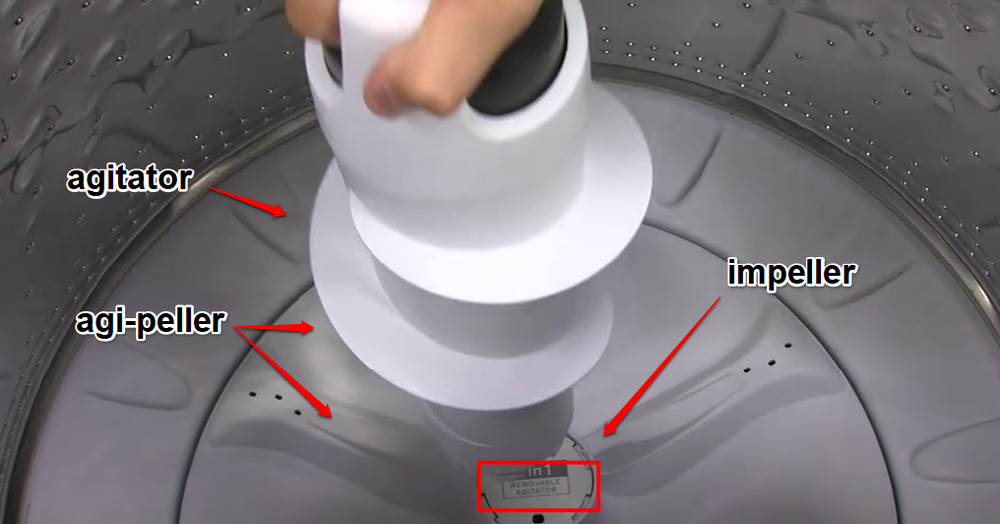
What to do:
My two cents? If the ad says the agitator is removable, skip it. There’s likely an impeller lurking beneath. Make a decision—either go for the real deal with an agitator or stick with an impeller. No fence-sitting here.
So, is the classic agitator still your best bet? For a lot of people, the answer’s a resounding yes.
Impeller or Agitator: A Side-by-Side Comparison Focused on 4 Key Purchase Considerations
1. Durability and Longevity
Thinking about durability? When it comes to spending hard-earned money on a washer, you want it to last. I get it; I’ve been fixing washers for years.
Impeller:
Most are crafted from durable materials like injection-molded plastic or stainless steel in premium models. I’ve personally handled countless impellers and can testify to their resistance. With their sleek design and fewer moving parts, wear and tear is minimal.
The added bonus? They’re energy-efficient.
But here’s the catch:
Their gentler wash might mean multiple cycles for tough stains. More washes, more wear.
Agitator:
Agitators have a reputation for resilience. But brand matters. While sifting through a Reddit discussion, a consensus emerged:
Aavoid Samsung if you’re opting for an agitator.
Recommendations? Whirlpool WTW4816/WTW4616, Amana NTW4516, Maytag MVWP575/MVWP576, Speed Queen TC5, and many GE models made the list. These models have evolved, minimizing potential pitfalls. Yet, more components can mean more chances for wear.
The Verdict:
I’ve serviced both impellers and agitators over the years. With proper care, either can be a long-term companion.
But as Tyler always says, “Trust the users!” Given the feedback, the agitator edges out for durability. Choose wisely!
2. Cleaning Features
| Cleaning Features | Impeller Washer | Agitator Washer |
|---|---|---|
| Gentle cleaning | Yes. It is typically delicate with clothing. | It can be more aggressive on fabrics. |
| Cleaning efficiency | It does not perform well with tough stains. | It is very effective at eradicating tough stains. |
| Wash cycle speed | It takes more time to complete the wash cycle. | It takes less time to complete the wash cycle. |
| Load capacity | It can accommodate more bulky loads. | Apart from high-capacity washers, it typically has less drum space. |
| Energy and water efficiency | It is designed to use less water and conserve energy. | It uses more water but can be energy efficient, depending on the brand. |
Let’s talk cleaning features. Seriously, this is where the rubber meets the road for top-load washers.
Impeller:
I’ve worked on impeller washers that can handle anything from silk blouses to heavy comforters. They’re versatile. Trust me, these machines are gentle on your clothes.
No central column? More room for your laundry. Plus, they sip water—just 20 to 30 gallons a cycle, according to a Reddit user.
But wait. It’s not all sunshine and rainbows. Deep stains? The impeller’s gentle approach often falls short. And don’t get me started on the longer wash cycles.
Agitator:
Switch gears to agitator washers. Need to tackle tough stains? These machines are your henchmen. My buddy Tyler says, “The central agitator takes up space but creates a lot of friction.” Translation: faster cycles but less room for bulky items.
And yes, there’s a flipside. Your clothes might wear out faster and get tangled. Water-efficient? Not so much.
The Verdict:
I wish I could declare a winner, but it’s not that simple. Both types have their merits and pitfalls.
- Got kids? Constantly battling grass and food stains? Go for an agitator.
- Office job? Delicate fabrics and minor stains? An impeller’s your guy.
You’ve got the facts. Now, make your pick.
3. Repair and Maintenance Challenges
If you own a washer, you’re gonna face some issues—whether it’s an impeller or agitator type.
Trust me, I’ve fixed countless models of both. So, let’s break it down: Which is the lesser evil?
Impeller:
Impellers have a sleek design. Fewer moving parts mean less trouble, right? They’re also water-efficient, cutting down on pesky limescale.
But don’t be fooled; they’ve got their quirks.
Once, I had to replace the impeller on an LG washer after a customer complained that it was damaging their clothes, much like this Reddit user.
Tyler chimes in, “People overload impellers. That messes with the rotation.” He’s spot on. A Reddit user even advised, “If the middle’s hidden, you’re loading it wrong.” So, keep that in mind.
Agitator:
Now, agitators are a different animal. They’ve got gears and cogs that wear down.
Case in point:
My own Whirlpool once stopped spinning because the agitator dogs were shot. Luckily, finding parts was a breeze. Why? These designs are older than dirt, so parts are everywhere.
The Verdict:
Both types can act up if you don’t treat them right. Load them properly, and you’ll avoid half the headaches.
But if repairability is your thing, agitators have the edge. I’ve even seen common issues with Whirlpool models that are easy to fix because, well, they’ve been around.
4. Cost Discrepancies
Let’s talk money, because who doesn’t? Your budget is often the final say in which top-load washer you’ll take home.
Impeller:
Here’s the thing. Impeller washers aren’t cheap. Tyler, another technician I frequently collaborate with, believes it’s due to the modern tech they pack.
But listen up:
Although you’ll spend more upfront, the efficiency gains in water and energy use can level out the initial hit on your wallet over time.
Agitator:
On the flip side, an agitator washer is more budget-friendly right out of the gate. But be cautious—lower upfront costs can lead to higher operational expenses down the road. Your utility bills will tell the tale.
The Verdict:
So, you’ve got a choice:
If you’re pinching pennies right now and need immediate cost savings, an agitator might be your go-to.
However:
If you’re looking at the long game and are willing to invest upfront for future savings, consider an impeller.
Bottom line?
Weigh both the immediate and long-term costs against your budget and needs before you make your pick. Trust me, your wallet will thank you later.
The Advantages and Drawbacks of Impeller vs. Agitator
Decisions, decisions. Impeller or Agitator? I’ve been asked this countless times, and each time, I delve into my years of hands-on experience with both types. Each has its merits and challenges.
But let’s make it simpler.
Here’s a direct comparison based on my countless repairs and observations:
Impeller
Pros
- Gentle cleaning preserves delicate fabrics.
- Eco-friendly: less water and energy consumption.
- Large drum capacity – ideal for bulky loads.
- Operates quieter than agitator washers.
Cons
- Struggles with tough stains.
- Wash cycles tend to be longer.
- Pricier upfront.
- Requires regular maintenance to prevent component issues.
Agitator
Pros
- Exceptional at tackling deep-seated stains.
- Quicker wash cycles.
- Wallet-friendly initial cost.
- Replacement parts are easy to find.
- Known for durability. Most technicians, like me, can troubleshoot them in their sleep.
Cons
- Can be rough on fabrics, hastening wear.
- Uses more water and energy.
- Clothes may tangle around the agitator.
- Offers less drum capacity.
- Susceptible to wear and other maintenance issues.
- Tends to be noisier than impellers.
Impeller vs. Agitator: What’s Best for You?
Here’s the real talk:
Stepping into an appliance store can be overwhelming, especially when it comes to choosing between a top-load washer with an agitator or an impeller.
So, let me share a bit from my world.
During my years as an appliance technician, I’ve faced my fair share of dirty laundry—literally. I lean on my trusty Whirlpool agitator top-load washer.
Why? For me, an impeccable wash trumps all other features. Echoing a sentiment I spotted on Reddit, “The main thing? A washer needs to clean, and clean efficiently.”
And for techies like me, troubleshooting my Whirlpool is a breeze.
Now, for the big decision:
Reflect on what matters most in your daily laundry routine. Consistently battling tough stains or working within a budget? An agitator might be your ally. However, if a gentler wash, efficiency, and a bit more luxury are on your wishlist, consider an impeller.
The choice is yours. Trust your instincts.
Conclusion
Alright, let’s wrap this up.
You’ve journeyed through the nitty-gritty of top-load washing machines. We dug deep into impellers and agitators, discussing their pros and cons. Trust me, as someone who’s spent years tinkering with these machines, understanding these parts is crucial.
We dissected:
- Durability and lifespan
- Cleaning capabilities
- Repair challenges
- Cost factors
Why does this matter? My goal was simple:
To arm you with the info you need to make a regret-free choice about your next top-load washer.
So, here’s the deal:
If you’re still fuzzy on any details, don’t hesitate to tap into our “Ask the Expert” FB group. I’m here to clear up any confusion.
Got thoughts? Drop them in the comments. Your feedback fuels this blog.
Happy shopping, folks.

